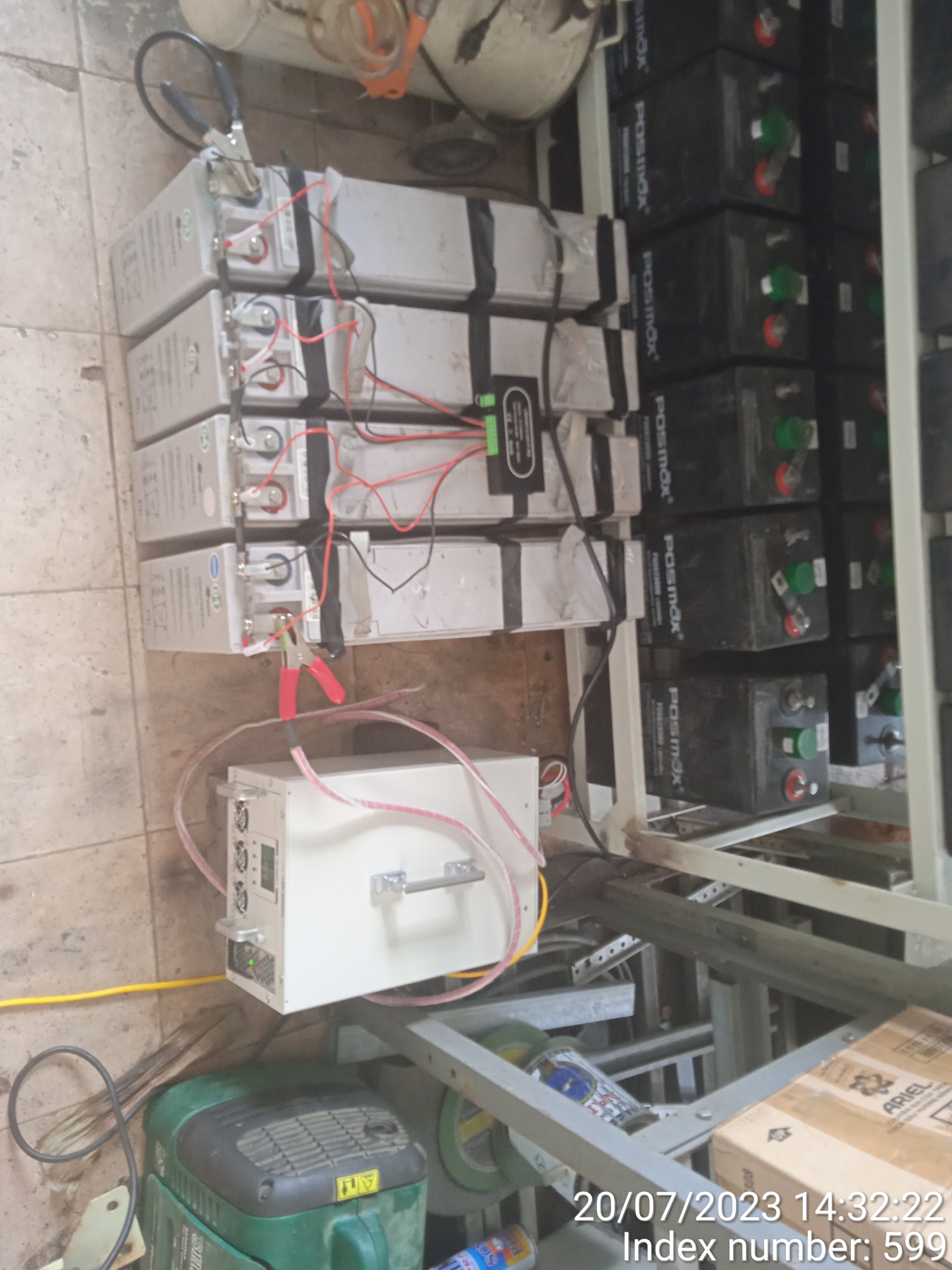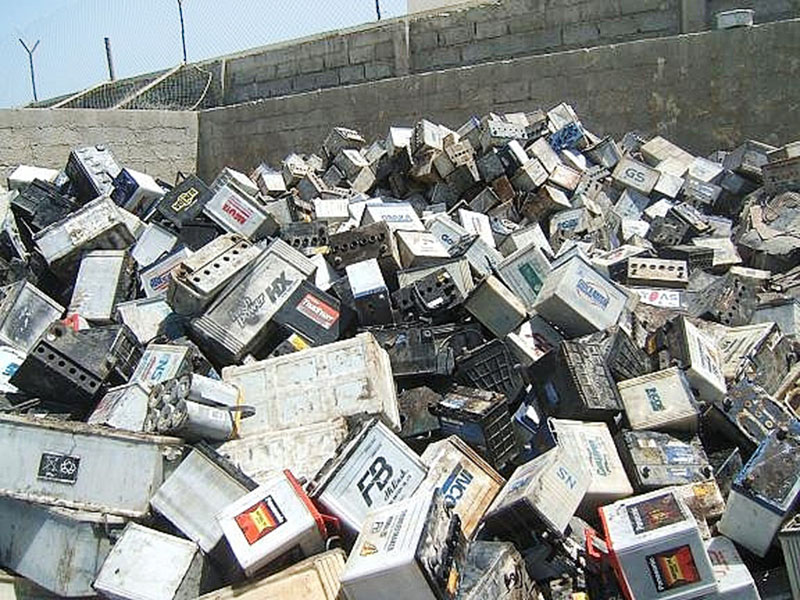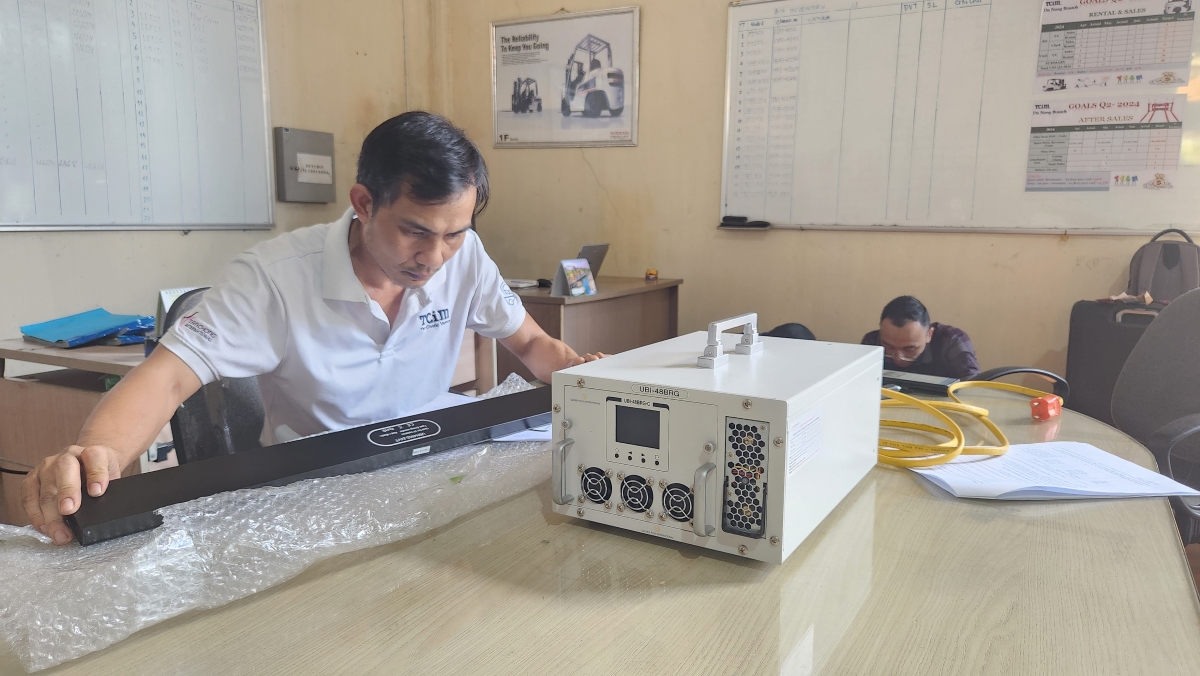- Telecommunications batteries
- Telecommunications batteries play a crucial role in human life, with demand continually rising due to their essential function in power storage. In theory, these batteries are designed to last 10-15 years, but they typically only last 3-4 years. This shortened lifespan is often due to improper maintenance, which leads to the accumulation of sulfate deposits on the battery plates, ultimately reducing the battery’s longevity.
- High replacing cost
- Increasing Battery Demand and Lack of Regeneration
- Assess specifications and evaluate current capacity. Remove sulfate buildup to restore maximum battery capacity and balance the cells. Classify batteries into technically similar groups to ensure optimal operation.
Telecommunication batteries are essential for reliable power storage but degrade over time, reducing efficiency and increasing replacement costs. Golden Plus's Telecommunication Battery Recovery Solution helps businesses optimize costs by restoring battery capacity and extending service life, ensuring sustained performance and environmental sustainability

Telecommunications batteries
Telecommunications batteries play a crucial role in human life, with demand continually rising due to their essential function in power storage. In theory, these batteries are designed to last 10-15 years, but they typically only last 3-4 years. This shortened lifespan is often due to improper maintenance, which leads to the accumulation of sulfate deposits on the battery plates, ultimately reducing the battery’s longevity.
High replacing cost
Generally, these batteries last about 3-4 years before they need to be discarded and replaced. However, battery regeneration solutions can help businesses save at least 50% on replacement costs over 8-10 years.
Increasing Battery Demand and Lack of Regeneration
In recent years, Vietnam’s industrial sectors have seen a growing demand for batteries. However, regeneration practices remain underdeveloped, relying primarily on manual methods.
Environmental Impact of Battery Disposal
According to the IFC, Vietnam discarded about 40,000 tons of batteries in 2010, a number projected to reach 70,000 tons by 2015. Many of these batteries are regenerated in informal workshops, harming the environment and human health.
Health Risks of Lead Exposure
Lead in batteries is toxic, particularly impacting the brain, kidneys, reproductive system, and cardiovascular health. It poses severe risks to children, potentially lowering IQ and causing developmental issues.

Battery disposal significantly impacts both the environment and human health.
Golden Plus's Battery Regeneration Solution
Cost Optimization: Our advanced Battery Regeneration Machine significantly extends battery lifespan, allowing businesses to save up to 45-60% on new battery purchases and dramatically reducing operational costs. This means companies that rely heavily on batteries can significantly reduce their operational budgets and procurement costs, ultimately benefiting from the performance of their aging battery systems.
Telecommunications Battery Recovery:
- Assess specifications and evaluate current capacity.
- Remove sulfate buildup to restore maximum battery capacity and balance the cells.
- Classify batteries into technically similar groups to ensure optimal operation.
Why Choose Golden Plus's Battery Recovery Solutions?

The professional battery regeneration and recovery process for telecommunications offers an optimal solution that saves users up to 80% in cost


